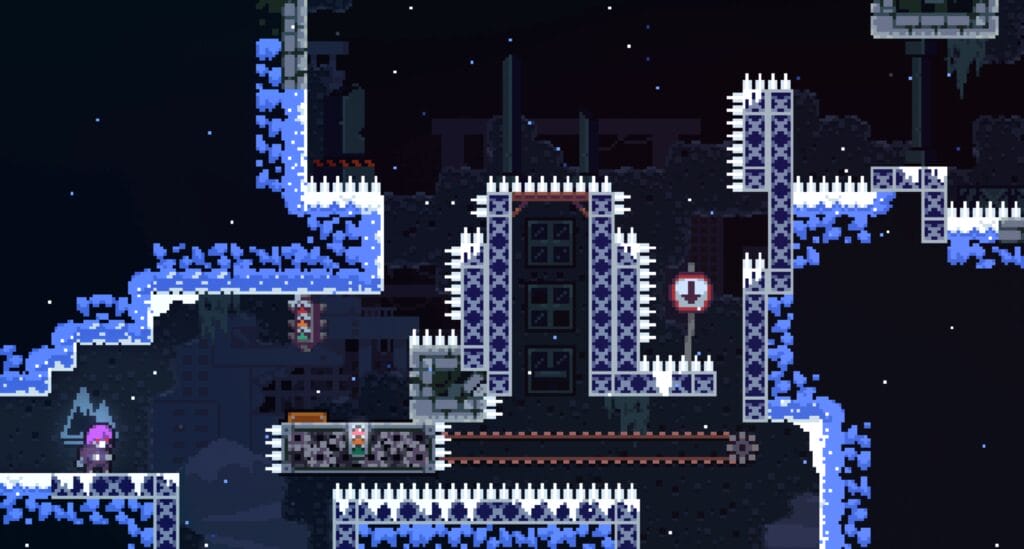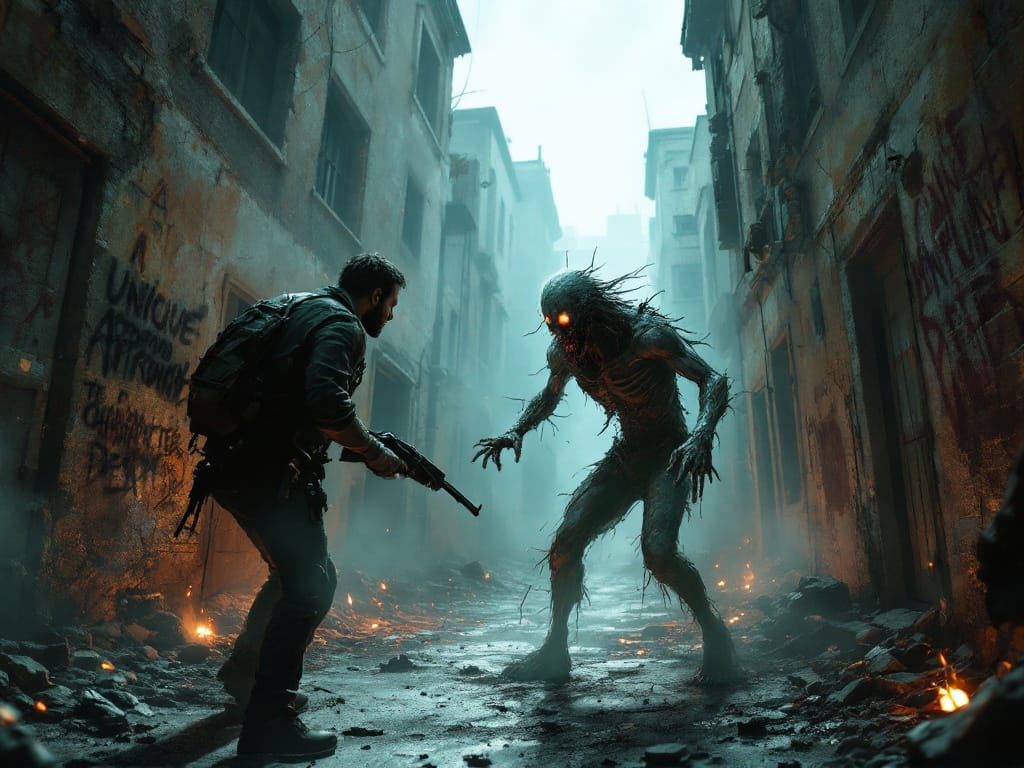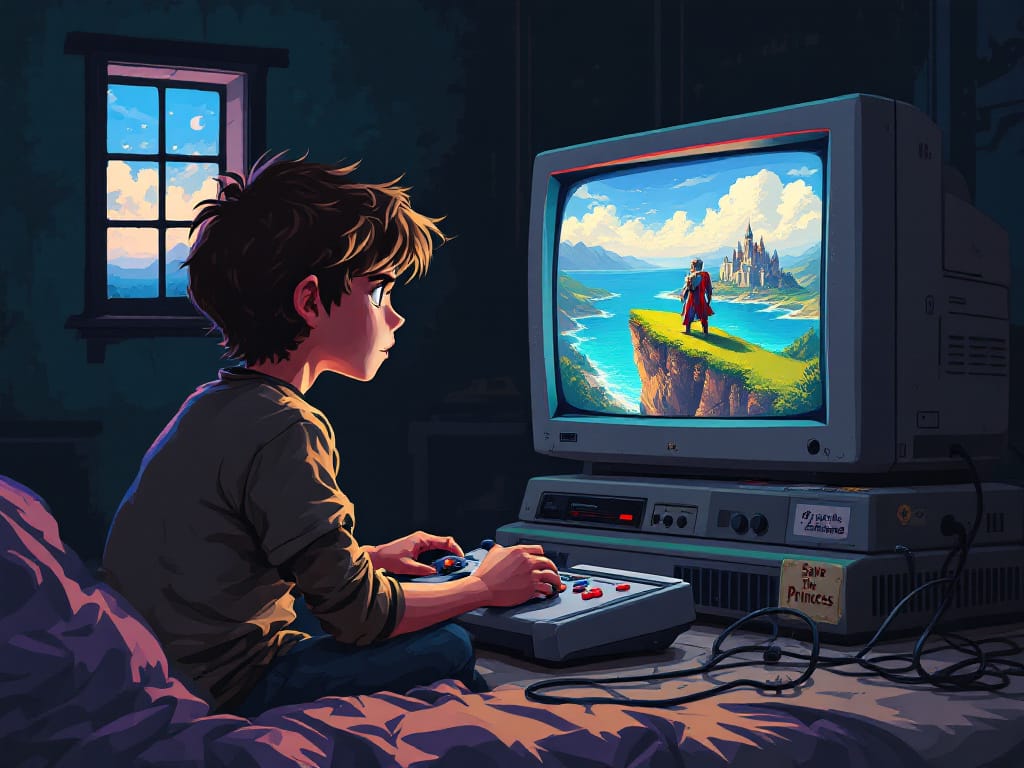The gaming industry is an increasingly popular and competitive field, making it challenging for individuals to secure employment within this sector.
This article seeks to delve into the obstacles that come with landing a job in the gaming industry, with a particular focus on the trials encountered by hopeful game designers and the essential qualities needed to thrive in this field.
It will also provide helpful tips and advice for those aspiring to enter the field of game design.
By examining the background information provided, which includes discussions on the importance of game development knowledge, the difficulties in obtaining a job in game design, and the qualities and responsibilities of game designers, it becomes evident that the gaming industry demands a high level of skill, experience, and dedication from potential job seekers.
The purpose of this article is to offer valuable insights and guidance to those who are interested in pursuing a career in game design. It provides a comprehensive understanding of the challenges and prerequisites required to succeed in this highly competitive industry.
Key Takeaways
- Game development knowledge and skills are important for getting a job in the gaming industry, and receiving knowledge from experts is valuable.
- Getting a job in game design can be challenging due to high competition and an overabundance of candidates, especially for creative roles.
- Game designers need to possess qualities such as creativity, vision, effective communication skills, patience, and commitment.
- The daily responsibilities of game designers can vary depending on factors such as the game type, team size, and game stage. Some of these tasks include defining rules, collaborating with team members, finding solutions to problems, and creating software/prototypes.
Get A Job In The Gaming Industry
Industry Trends
The gaming industry is known for its constant evolution, driven by advancements in technology and changing consumer preferences. Staying up-to-date on the latest trends is crucial for professionals in the field. Here are some important trends to watch:
- Rise of Mobile Gaming: With the widespread availability of smartphones and tablets, mobile gaming has become increasingly popular. The convenience and accessibility of mobile devices have made gaming more accessible to a broader audience. This trend has led to the development of innovative mobile games and opened up new opportunities for game developers and publishers.
- Increasing Popularity of VR and AR: Virtual Reality (VR) and Augmented Reality (AR) technologies have gained significant traction in recent years. VR offers immersive gaming experiences, allowing players to feel like they are part of the game world. AR blends virtual elements with the real world, creating interactive and engaging experiences. These technologies have the potential to revolutionize the gaming industry and create new possibilities for game design.
- Growing Demand for Inclusive and Diverse Games: There is an increasing demand for games that cater to a diverse audience and embrace inclusivity. Players are seeking games that feature diverse characters, represent various cultures and backgrounds, and provide inclusive gameplay experiences. Game developers are focusing on creating more inclusive narratives, diverse character options, and accessible gameplay mechanics to meet this demand.
By understanding and keeping abreast of these trends, you can position yourself as an expert in your field. This knowledge allows you to adapt to the changing landscape of the industry and make yourself more attractive to potential employers. In addition, it allows you to seamlessly integrate these trends into your own game design endeavors, guaranteeing that your games remain up-to-date, captivating, and strike a chord with today’s audience.
Education and Training Options
When it comes to education and training options for aspiring game designers, there are several paths you can consider. One option is pursuing a degree in game design, which provides a comprehensive education in the field. However, it’s important to keep in mind that obtaining a degree can be costly and time-consuming.
Alternatively, you can explore more informal training options such as online courses, workshops, or boot camps. These options tend to be more flexible and affordable, allowing you to learn at your own pace. However, they may not offer the same level of depth and comprehensive knowledge as a degree program.
Ultimately, the choice between formal and informal education depends on your individual needs and goals. If you’re looking for a strong foundation and a thorough understanding of game design principles, a degree program may be the right choice for you. On the other hand, if you prioritize flexibility and cost-effectiveness, informal training options can be a viable alternative.
To determine the best educational path for you, I recommend conducting further research to gather more information about the different options available. This will help you make an informed decision that aligns with your specific aspirations in the field of game design.
Portfolio Development
Building a strong portfolio is crucial for aspiring game designers as it allows them to showcase their skills and creativity to potential employers. Your portfolio must showcase a wide array of projects that effectively showcase your talents in various areas such as concept art, level design, and gameplay mechanics.
During the development of your portfolio, it’s essential to be discerning and selective. Include only your finest work, ensuring that each project is relevant to the positions you are applying for. This demonstrates your focus and expertise in specific areas of game design. Additionally, take the time to present your portfolio in a professional and organized manner.
Keep in mind that your portfolio is like your personal brand, so it’s crucial to dedicate time and energy to crafting a portfolio that truly shines and makes a memorable impact on prospective employers.By doing so, you can increase your chances of securing opportunities in the competitive field of game design.
Job Search Strategies
When it comes to securing employment in the gaming industry, having a well-defined job search strategy is absolutely essential, given the highly competitive nature of the field. Here are a few tips to help you navigate the process:
- Networking: Make an effort to connect with professionals in the gaming industry. Attend industry events, join relevant online communities, and utilize platforms like LinkedIn to build connections. Additionally, reach out to friends and family who may have connections or insight into the gaming industry.
- Targeted Applications: Instead of applying for any available job, focus on positions that align with your skills and experience. Tailor your applications to highlight how your qualifications make you a strong fit for the specific role and company.
- Portfolio and Process: Be prepared to discuss your portfolio and game design process during interviews. Showcase your best work and be ready to explain the thinking and techniques behind your projects. This demonstrates your expertise and passion for game design.
- Persistence: The job search process in the gaming industry can be time-consuming, so it’s important to remain persistent. Rejections may happen, but don’t let them discourage you. Continue refining your skills, expanding your network, and applying to relevant positions. Persistence can pay off in finding the right opportunity.
By implementing these strategies, you can increase your chances of finding success in the competitive job market of the gaming industry. Remember to stay proactive, showcase your skills effectively, and remain resilient throughout the process.
Freelancing and Independent Game Development
If you’re interested in game design, there are two alternative career paths you can consider: freelancing and independent game development.
Freelancing in game design allows you to work on a diverse range of projects with different teams. This provides you with valuable experience and an opportunity to expand your portfolio. By collaborating with various clients, you can gain insights into different game genres, platforms, and design approaches. Freelancing also offers the flexibility to work on multiple projects simultaneously, which can enhance your skills and broaden your network within the industry.
On the other hand, independent game development is a more challenging but potentially rewarding path. As an independent game developer, you have the freedom to create games on your own terms. You can explore unique ideas, experiment with unconventional gameplay mechanics, and express your creative vision without constraints. Independent game development allows you to have complete control over the entire process, from concept development to game release. While this path requires selfmotivation, discipline, and perseverance, it can provide immense satisfaction and a chance to leave your mark on the industry.
Both freelancing and independent game development offer unique advantages and challenges. Freelancing offers the opportunity to gain experience and build a diverse portfolio, while independent game development allows for creative freedom and personal expression. Consider your goals, preferences, and risk tolerance when deciding which path to pursue. No matter which path you decide to take, always remember the importance of continuously improving your skills, staying current with industry trends, and building relationships with other professionals. These are key elements that will greatly enhance your chances of achieving success.
Challenges in Game Design
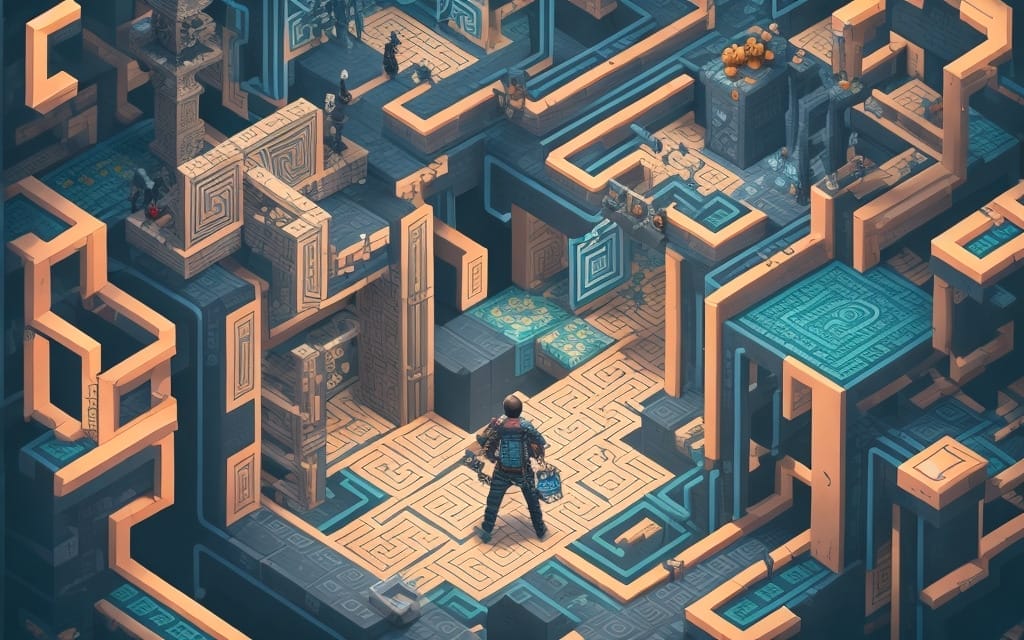
In the world of game design, one can’t deny the presence of challenges. For instance, securing a job in this industry, especially for creative positions, can be quite formidable. The reason behind this is the intense competition and the sheer number of talented individuals vying for the same opportunities.
The job market for game design is highly competitive, with many individuals vying for limited positions. This saturation of candidates makes it challenging for aspiring game designers to secure employment in their desired roles.
Moreover, creative positions within the gaming industry often require a high level of skill and expertise, further increasing the competition.
Despite the challenges, the rewards in the gaming industry can be significant. Successful game designers have the opportunity to work on innovative projects, contribute to the creation of engaging gameplay experiences, and potentially earn lucrative salaries.
However, it is important for aspiring game designers to be aware of the intense competition and to continually develop their skills to stand out in the job market.
Qualities of Game Designers
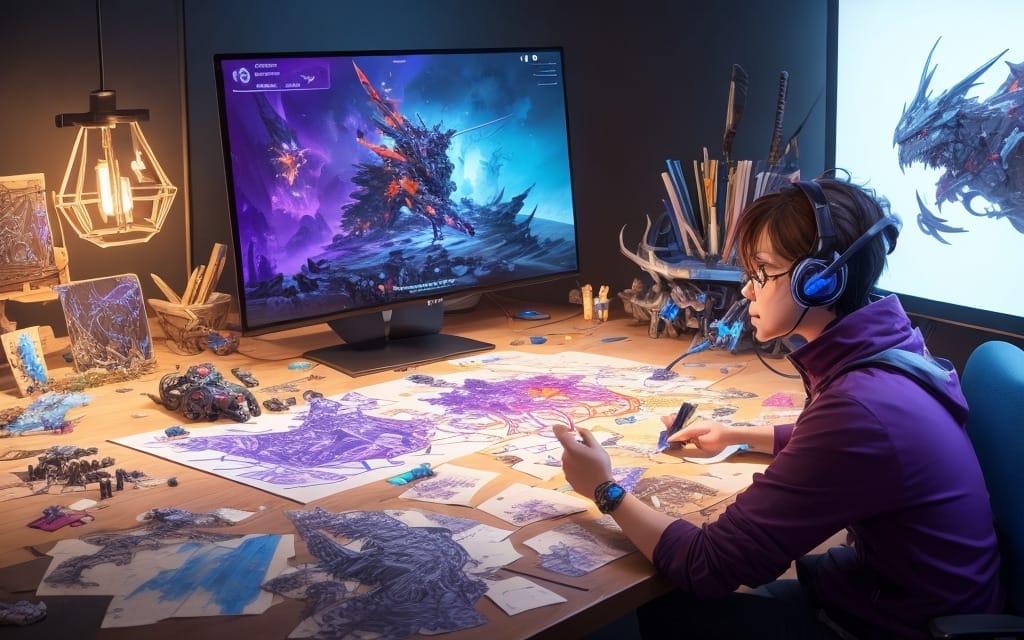
Qualities required for individuals pursuing a career in game design include:
- Creativity: Game designers must possess a high level of creativity to come up with innovative and unique game concepts, mechanics, and storylines.
- Strong problem-solving skills: Game designers are responsible for identifying and solving gameplay issues, ensuring a smooth and enjoyable player experience.
- Effective communication abilities: Game designers need to effectively communicate their ideas and vision to other team members, including artists, engineers, and writers.
- Ability to envision and create engaging and enjoyable gaming experiences: Game designers must have the ability to envision and bring to life immersive and captivating gaming experiences that keep players engaged and entertained.
These qualities are essential for game designers to succeed in their roles and contribute to the development of a successful game.
Tips for Aspiring Game Designers
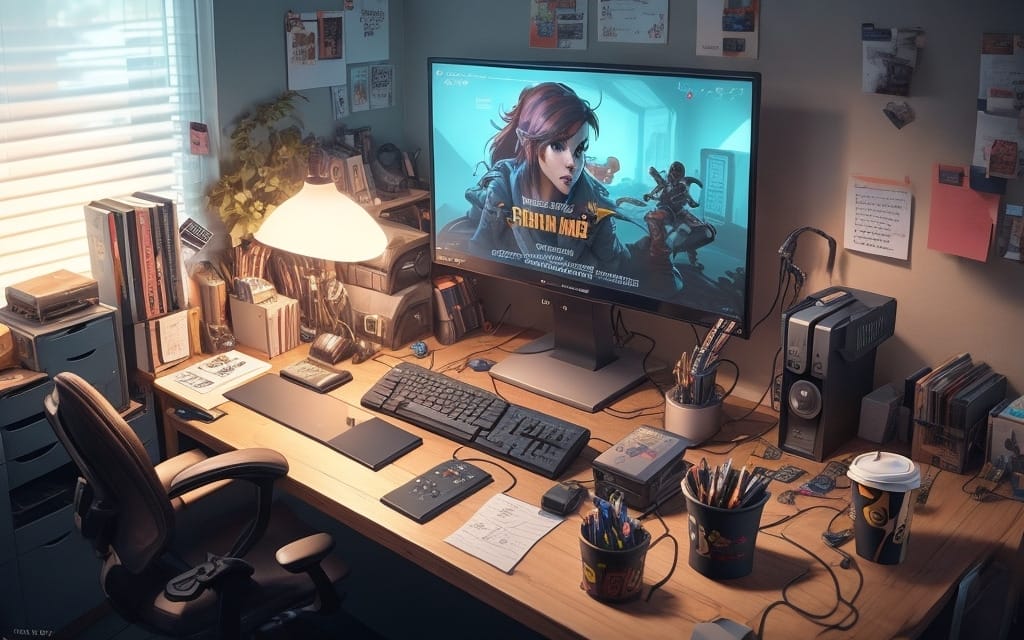
When pursuing a career in game design, aspiring individuals can benefit from attending game conventions, participating in multiplayer gaming experiences, and establishing meaningful connections with others in the industry. Building relationships and networking within the gaming community can provide valuable opportunities for growth and development.
It is important for aspiring game designers to start small and focus on creating their own games, even if it means starting with simple projects. This allows them to gain practical experience and develop their skills in game design. By starting small, aspiring game designers can learn from their mistakes, refine their techniques, and gradually work towards more complex and ambitious projects.
Is Being a Game Designer Worth It?
Being a game designer can be a fulfilling and rewarding career for those who are passionate about games and creativity. However, it also comes with its challenges and uncertainties. Here are some factors to consider:
Pros of being a game designer:
- Creative expression: You have the opportunity to bring your ideas to life and create unique and immersive gaming experiences.
- Collaborative work: Game design often involves working with a team of talented individuals, including artists, programmers, and writers, fostering a collaborative and dynamic work environment.
- Impact on players: Games have the power to entertain, inspire, and even educate players. As a game designer, you can have a direct impact on the experiences and emotions of players.
- Constant learning: The game industry is constantly evolving, which means you’ll always have the opportunity to learn and grow as a designer.
Cons of being a game designer:
- Competitive industry: The game industry is highly competitive, with many aspiring designers vying for limited job opportunities. It can be challenging to break into the industry and establish yourself.
- Long hours and tight deadlines: Game development often involves long working hours, especially during crunch periods before a game’s release. This can lead to high levels of stress and burnout.
- Uncertain job stability: The game industry can be unpredictable, with studios closing down or projects being canceled. Job stability may vary depending on the company and the state of the industry.
- Balancing creativity and constraints: Game design requires finding a balance between creative vision and practical constraints, such as budget and technical limitations.
In the end, whether pursuing a career as a game designer is truly worthwhile is contingent upon your genuine passion for games, resilience in the face of challenges, and capacity to adapt to the constantly evolving industry.It can be a fulfilling career for those who are passionate and dedicated to their craft.
What’s A Typical Day To Day for a game designer
A typical day-to-day as a game designer in the industry involves various tasks and responsibilities. Game designers collaborate with a team of artists, programmers, and other game designers to develop new game ideas and concepts. They participate in brainstorming sessions and conduct research on industry trends and player preferences.
Game designers create detailed game design documents that outline the mechanics, gameplay, and story of the game. These documents serve as a blueprint for the development process and provide clear instructions for the team.
Designing levels, characters, and game systems is a significant part of a game designer’s role. They carefully consider player interaction, pacing, and overall game flow to create engaging experiences. Through iterative design, game designers test and refine their ideas to ensure enjoyable and balanced gameplay.
Balancing game difficulty and progression is crucial. Game designers adjust variables and mechanics to provide a satisfying experience for players of various skill levels. They work closely with artists and programmers to ensure the visual elements and gameplay features align with the intended vision.
Game designers actively participate in playtesting to identify and address any issues or bugs. This iterative process helps refine the game until it reaches its full potential. They also stay updated on industry trends and new technologies to incorporate innovative elements into their games.
Attending meetings and presenting game ideas to stakeholders is a regular part of a game designer’s routine. They communicate their vision, explain design choices, and gather feedback to make necessary adjustments.
Game designers play a crucial role in the game development process, contributing to the creation of immersive and enjoyable gaming experiences for players.
Frequently Asked Questions
What are some common misconceptions about the challenges of getting a job in the gaming industry?
Common misconceptions about the challenges of getting a job in the gaming industry include the belief that a degree in game development is necessary and that competition is solely based on technical skills. In reality, skills, experience, and networking are crucial factors in the job market competitiveness.
How does the level of education impact the chances of landing a job in the gaming industry?
The level of education can impact job opportunities in the gaming industry. While a degree in game development is not necessary, it can be helpful in demonstrating knowledge and skills to potential employers. However, demonstrable talent and experience are often valued more than education.
What are some key skills and qualities that employers look for in game designers?
Employers in the gaming industry look for game designers with key skills such as game development knowledge, basic programming skills, creativity, vision, effective communication, and the ability to collaborate. They also value qualities like patience, commitment, and a passion for gaming.
How important is networking and building relationships in the gaming industry?
Networking and building relationships are highly important in the gaming industry. Attending industry events allows professionals to connect with potential employers and collaborators. Leveraging social media platforms can also help individuals showcase their work and connect with others in the industry.
Are there any specific certifications or training programs that can boost one’s chances of getting a job in the gaming industry?
Certifications and training programs can enhance one’s chances of securing a job in the gaming industry. They offer advantages such as specialized knowledge, practical skills, and industry recognition, which can impress employers and demonstrate a commitment to professional development.
Do You Need A Degree To Be A Game Designer
No, a degree is not always required to become a game designer. While some employers may prefer candidates with a degree in game design or a related field, it is possible to enter the game design industry without a formal degree. Building a strong portfolio of game design projects and gaining practical experience through internships or independent projects can also be valuable for starting a career in game design.
How Much Do Game Designers Make
The salary of game designers can vary depending on factors such as experience, location, and company size. On average, game designers can make anywhere from $50,000 to $100,000 per year. However, highly experienced and successful game designers can earn salaries well above $100,000.
Conclusion: Get Job in the gaming industry as a game designer
The gaming industry is a rapidly growing and evolving industry, and it offers exciting and rewarding opportunities for aspiring game designers. However, the competition for jobs in the gaming industry is also fierce, so it is important for aspiring game designers to have the skills and experience necessary to stand out from the crowd.
One of the best ways to develop the skills necessary for a career in game design is to pursue formal education. There are many universities and colleges that offer degrees in game design, and these programs can provide students with the knowledge and skills they need to succeed in the industry. In addition to formal education, aspiring game designers can also gain valuable skills and experience by working on personal projects or internships.
Another important factor for aspiring game designers is to stay up-to-date with the latest software tools and technologies used in game development. The gaming industry is constantly evolving, and new tools and technologies are emerging all the time. By staying up-to-date, aspiring game designers can ensure that they have the skills and knowledge necessary to create games that are visually stunning and technically advanced.
In addition to technical skills, aspiring game designers also need to have strong creative and problem-solving skills. Game design is a creative process, and it requires the ability to come up with new and innovative ideas. Game designers also need to be able to solve problems, as they will often encounter challenges during the development process.
Networking with professionals in the gaming industry is another valuable strategy for aspiring game designers. By attending industry events, joining online communities, and participating in game jams, you can network with individuals who share your interests, gain invaluable insights and knowledge from seasoned experts, and exhibit your exceptional talent and creativity to a wide audience.
Finally, it is important for aspiring game designers to stay abreast of industry trends. Having a strong understanding of popular game genres, emerging technologies, and player preferences can provide game designers with a significant advantage in the industry, allowing them to craft groundbreaking and captivating game experiences.
In conclusion, with dedication and perseverance, aspiring game designers can turn their passion for gaming into a fulfilling profession. The gaming industry offers a vast and ever-evolving landscape where talented individuals have the chance to create immersive and captivating experiences for players worldwide. Aspiring game designers can greatly enhance their chances of making a lasting impact in the gaming industry and transforming their creative visions into reality by refining their skills, building a robust professional network, and keeping abreast of the latest industry trends.
Here are some additional tips for aspiring game designers:
- Play a variety of games. The more games you play, the better you will understand what makes a game fun and engaging.
- Read books and articles about game design. There is a wealth of information available about game design, and reading about the latest trends and techniques can help you stay ahead of the curve.
- Start small. Don’t try to create the next big hit right away. Start by creating small, simple games that you can finish in a few weeks or months.
- Get feedback from others. Once you have created a game, get feedback from friends, family, and other gamers. This feedback can help you identify areas where your game can be improved.
- Don’t give up. The gaming industry is competitive, but if you are passionate about game design, and you are willing to put in the hard work, you can achieve your dreams.
You can find more interesting articles about game design on our blog.

















